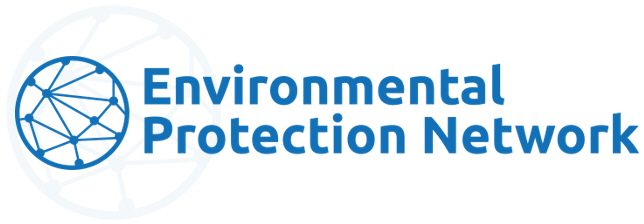We hope you’re hanging in there! The EPN and L4GG teams remain committed to working in partnership with you and your organizations through this difficult time. Please read on for funding opportunities, a recap of our September 5th webinar, and more. And please sign up here to register for our future grants management/safeguarding federal funding calls (including this Wednesday, September 10th).
Funding Opportunities:
1. Renewable Natural Resources Foundation (RNRF) Grant Program
The RNRF Grant Program funds projects that connect research, evidence-based practices, and implementation while engaging community partners. Eligible applicants are U.S.-based 501(c)(3) organizations collaborating across disciplines. The application deadline is Tuesday, September 30. The three application opportunities include:
- Rapid Response Grants – Up to $50,000
Rapid Response Grants offer short-term funding to organizations that have lost federal funding. These grants are intended to support projects directly impacted by the termination of federal funding. Grant funding may be used to fill critical gaps, complete essential components, or responsibly close out federally supported work.
- Planning and Small Grants – Up to $50,000
Planning grants are available to support potential collaborators to carry out the initial discussion and investigation to conceptualize a collaborative project and the methods needed to implement the project. Small grants support targeted projects that are limited in scope and budget.
- Implementation/Collaboration Grants
Implementation/Collaboration Grants provide up to $200,000 for projects lasting 12 months or more. These grants support the implementation of research and evidence-based practices and encourage collaboration.
Learn more here, and access the Request for Proposals for complete details.
2. Robert Wood Johnson (RWJ Funding Opportunities)
RWJ works side-by-side with communities, practitioners, and institutions to achieve health equity. They currently have two open funding opportunities:
Rapid Response: Reinvesting in Racial and Indigenous Health Equity Research: The purpose of this call for proposals (CFP) is to meet the current moment by supporting timely, actionable health equity research that has been interrupted by shifts in federal funding.
Rapid Response Research funding is exclusively available to applicants who have already received federal funding (e.g., from the NIH, CDC, NSF) for their health equity research, but have since had their funding partially or fully rescinded due to federal administrative actions. While we will not re-scrutinize the scientific merits of projects that have lost federal funding, our intent is to support research consistent with Evidence for Action’s mission to advance community-centered, action-oriented racial and Indigenous health equity research that focuses on structural solutions that are innovative, push beyond the status quo, and target root causes.
Awards may be for up to two years (24 months) in duration, and awards may range from $50,000 to $200,000 each. You may only request funding equivalent to the amount that was guaranteed and remained unspent on your federally funded project at the time of termination. The application deadline is October 1, 2025 3pm ET. Learn more here.
Exploring Equitable Futures: The purpose of this Exploring Equitable Futures call for proposals (CFP) is to support projects that seed new and unconventional ideas that could radically advance health equity for generations to come. They are particularly interested in projects that seed new and unconventional ideas within the Health Science Knowledge System—or that reimagine this system completely. As such, they are interested in projects that explore questions such as, but not limited to:
- How might trends, such as artificial intelligence and decreasing trust in institutions impact efforts to transform the Health Science Knowledge System?
- How might a reimagined Health Science Knowledge System produce knowledge that advances health equity? In a desired future, who gets to frame research questions? How does research reflect the priorities and concerns of community members? What qualifies as evidence?
- How might new structures, processes, and incentives ensure the future Health Science Knowledge System produces, validates, disseminates, and applies evidence to improve health?
Grants generally range from 24-36 months, and have no set award amount. The application deadline is October 15, 3pm. ET, and you can find more information here.
3. Growing Justice Fund RFP
The Growing Justice Fund is a pooled fund that invests in efforts to solidify the leadership, dignity, and power of Tribal, Indigenous, Black, Latinx, Asian, and immigrant people to identify and drive solutions that expand the market for good food from locally- or regionally-owned, and environmentally- and economically-sustainable farms, ranches, fisheries, and food businesses. Awards of $25,000 to $250,000 are available to support community leaders working in any of the three areas below, and the application deadline is Tuesday, October 14, 5 pm PT /8 pm ET:
- Building Infrastructure for good food procurement. Support for strengthening the entire food chain that connects directly to institutional purchasing, namely diverse good food producers, manufacturers, aggregators, small processors, and distributors to enter the institutional market and/or expand their business with institutions. These entities should be dedicated to specific community-serving institutions.
- Building policy action through grassroots organizing and advocacy for good food procurement. Support for community coalitions and organizations that build grassroots power to educate, engage, and mobilize communities in support of equitable food systems. This includes efforts that inform and influence public awareness, institutional practices, and educate government decision-makers around good food procurement. We prioritize efforts that integrate two or more of the Growing Justice Fund’s core values—Health Equity and Racial Justice, Economic Equity and Worker Justice, and Environmental and Food Justice—into their policy goals and strategies.
- Cultivating Traditional Food Pathways to build community wealth within Tribal Nations. Support for the leadership, knowledge, and self-determined priorities of Tribal Nations in advancing food sovereignty, traditional foodways, and community wealth. While Tribal-led efforts may intersect with infrastructure development and policy advocacy, this focus area exists to center the unique governance structures, intergenerational knowledge, and nation-to-nation relationships that shape Tribal food systems.
In addition, as part of this project, the Fund has developed a guide to help grantseekers find fiscal sponsorship. Learn more here.
4. Ben and Jerry’s Foundation National Grant Program
Ben and Jerry’s Foundation believes those most impacted by inequity and injustice are in the best position to develop solutions. Their intent is to achieve a better future for all by providing support to community-based, grassroots organizations confronting social and environmental injustice. They are inspired by Civil Rights icon John Lewis’ admonition, “Speak up, speak out, get in the way. Get in good trouble, necessary trouble.”
The National Grassroots Organizing Program (NGO) offers two-year unrestricted, general operating support grants of up to $30,000 per year, with an average grant size of $20,000 per year, to small (budgets under $350,000), constituent-led grassroots organizations throughout the United States and its territories. Applications for 2025 are now open, and may be submitted anytime throughout the year. Learn more here.
September 5th Webinar Recap:
5. Supreme Court Updates: American Public Health Associate v. NIH
Recently, the Supreme Court stayed an injunction that would have reinstated millions in NIH grants. Essentially, the US Supreme Court ruled that requests for reinstatement of grants must go to the Court of Federal Claims. The bottom line is that this makes it much harder to get grants reinstated in the District Court.
6. Lawsuit Updates
On August 29, 2025, Judge Leon issued a ruling that granted the government’s motion to dismiss and denied the plaintiff’s motion for a preliminary injunction and class certification in our Section 138 class action. The decision did not delve very much into the merits of the case. It was mostly based on an assessment that his court (the district court) did not have jurisdiction, per the NIH case referenced above.
7. Options for Grantees
We will review these options again in our next webinar on Wednesday, September 10, at 12:30pm ET, but there are a few paths grantees can consider, depending on the status of their grant, their outstanding costs, their capacity, and a number of other factors. Please join us during Wednesday’s discussion to learn more. Register here.
8. Request to Reconsider Template
On August 29, 2025, the EPA sent out the Dispute Decision Officials’ decisions affirming grant terminations en masse to grantees who went through the administrative dispute process. If you are a grantee who a) went through the administrative dispute process; and b) received a decision from the DDO on or around August 29, we are recommending that you send a Request to Reconsider to the EPA. Please request a copy of the template that’s best for your situation by emailing SFA@L4GG.org for Solar for All grants; and FPC@L4GG.org for all others. We will discuss the templates and address questions tomorrow at our twice monthly webinar/office hours: Wednesday, September 10th, at 12:30pm ET. Register here.
Resources:
9. Equation Campaign Security Resources
The Equation Campaign has some publicly available resources designed to strengthen the security of advocates and NGOs.
– Security Webinar Listing – A regularly updated hub for upcoming trainings (contact Corinne Gaston to share events)
– Security Toolkit – Practical guidance addressing key threat areas: legal, digital, physical, communications/reputation, financial, and organizational.
Updates on EPN’s Work:
Please take a moment to check out EPN’s Bimonthly Newsletter: EPN In Action: July-August 2025
Highlights:
– During July and August, EPN connected 45 volunteers to over 165 requests for technical assistance from frontline communities, nonprofit organizations, law clinics, under-resourced government agencies, and others.
– During July and August, EPN provided mentors to 17 members of AFGE Local 3911 (New York) in a soft-launch mentoring partnership.
– In August, EPN hosted a webinar in partnership with Green Jobs Network including practical tips and resources for finding jobs in sustainability, the environment, clean energy and related fields.
National Policy Updates:
– EPN submitted written comments and gave oral testimony on EPA’s proposal to repeal parts of the 2024 Mercury and Air Toxics Standards (MATS).
– EPN also submitted written comments and gave oral testimony on EPA’s Proposed Repeal of Greenhouse Gas Standards for Electric Generating Units.
– EPN submitted comments opposing EPA’s plan to delay PFAS drinking water standard compliance and rescind certain maximum contaminant levels (MCLs).
– EPN submitted comments urging EPA to select Clean Air Scientific Advisory Committee (CASAC) members with strong, multidisciplinary scientific expertise, free of conflicts of interest.
– EPN Executive Director Michelle Roos and EPN volunteer Larry Weinstock presented oral comments at a public hearing for EPA’s proposed repeal of the Endangerment Finding and Standard Rescission.

